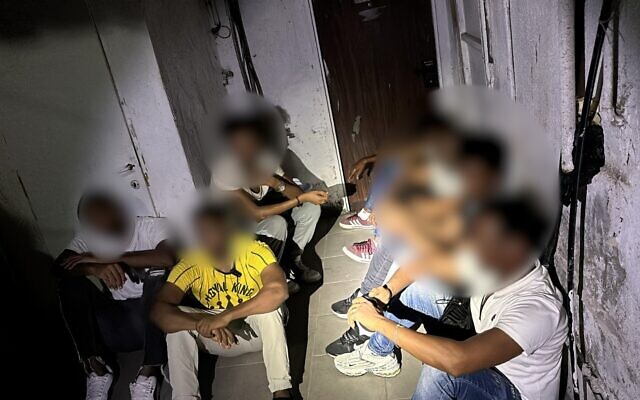One person was killed and another was seriously injured in a violent brawl that broke out between pro-regime and anti-regime Eritrean migrants in south Tel Aviv on Sunday night.
Police were called to the scene of a violent argument, according to a statement, in which warring groups of migrants and asylum seekers pelted each other with stones, and people were attacked with spikes and clubs.
The police initially said that two people had been taken to the hospital, one in critical condition and the other seriously injured, but updated a short while later that one of them had died of his wounds.
“Police forces dispersed a violent riot in Tel Aviv of Eritrean nationals, during which a foreign national was murdered,” the police said. “Eight suspects were arrested.”
Magen David Adom first responders had transported the critically injured man to Wolfson Hospital, where doctors determined his death, according to Hebrew news site Ynet. The second man was being treated at Ichilov Hospital in Tel Aviv, MDA added.

According to Ynet, it was not immediately clear what triggered the latest round of violence between opposing groups of Eritrean migrants. A member of the Tel Aviv District Police explained, however, that sometimes “it is enough for one group to recognize someone from another group, and in one moment it can turn into a multi-person brawl in which stones, spikes, and everything else is being thrown.”
The clashes between the two groups are not unusual. In May, a man was stabbed to death in a similar incident in south Tel Aviv, while last September, at least 170 people were hurt — including police officers — in major clashes in the city.
The string of incidents since last year has brought attention to the roughly 20,000 Eritreans who are living in Israel, after entering illegally before the completion of a barrier along the Egyptian border in 2012.
Various Israeli governments have taken a series of measures — some of which were blocked by the courts — to encourage the migrants, many of whom are seeking asylum due to war and oppression in their home country, to leave.






